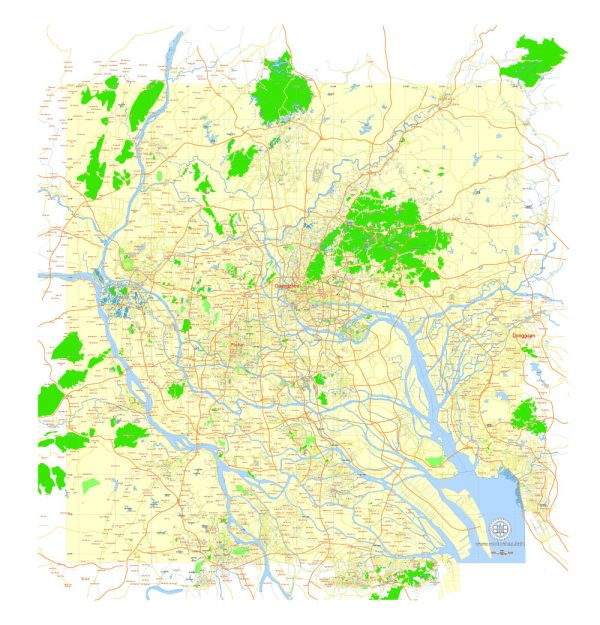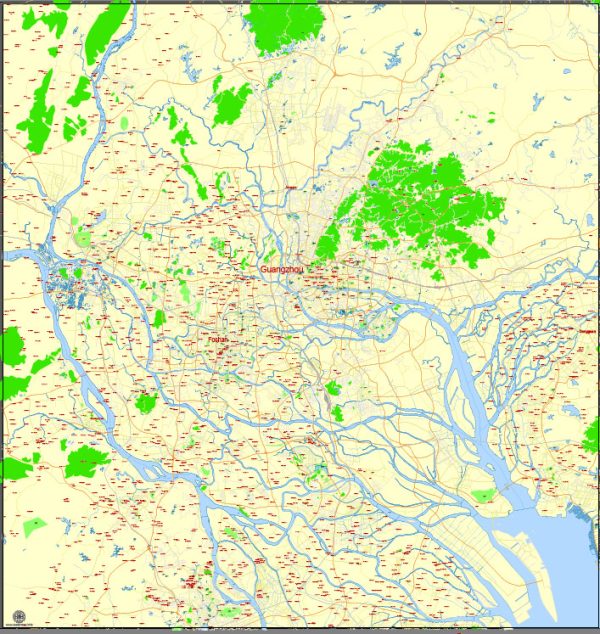Guangzhou, also known as Canton, is the capital of Guangdong Province in southern China. It is one of China’s largest and most important cities, serving as a major economic, cultural, and transportation hub. Here is a socio-economic description of Guangzhou:
- Economy: Guangzhou is a key player in China’s economic growth. It has a diverse and robust economy with a strong focus on trade and manufacturing. The city is a major manufacturing and export hub, particularly known for industries like electronics, textiles, garments, and machinery. It is part of the Pearl River Delta Economic Zone, which is one of the most economically developed regions in China.
- Trade and Commerce: Guangzhou is known for its vibrant wholesale and retail markets. The Canton Fair, held biannually, is one of the largest trade fairs in China and draws international buyers and sellers from various industries. The city’s strategic location on the Pearl River Delta has made it a vital trading gateway, boosting its economic growth.
- Transportation: Guangzhou Baiyun International Airport is one of the busiest airports in China, connecting the city to international destinations. Additionally, it’s a major transportation hub in the country, with high-speed rail connections to other major cities like Hong Kong, Shenzhen, and Beijing.
- Education: Guangzhou is home to several prestigious universities, including Sun Yat-sen University, South China University of Technology, and Jinan University. These institutions contribute to the city’s intellectual capital and research activities.
- Culture and Tourism: The city has a rich cultural heritage and boasts a mix of traditional and modern attractions. The Canton Tower, museums, and historical sites such as the Chen Clan Academy and Yuexiu Park draw tourists. The Cantonese cuisine, known for dim sum and various regional dishes, is also popular worldwide.
- Population: Guangzhou is one of China’s most populous cities, with a diverse population. It has a significant expatriate community and is known for its cultural diversity. The city’s population includes various ethnic groups, and multiple languages are spoken.
- Housing: Guangzhou’s real estate market has experienced significant growth due to the city’s economic prosperity. Housing prices have risen, and there’s a mix of housing options, including high-rise apartments and traditional residences.
- Infrastructure: The city has invested heavily in infrastructure development, with an extensive network of roads, bridges, and public transportation. The Guangzhou Metro is one of the most extensive and efficient subway systems in China.
- Environmental Challenges: Like many rapidly growing urban areas in China, Guangzhou faces environmental challenges, including air pollution, due to industrial and urban development. However, the city has also made efforts to improve air quality and promote green initiatives.
- Socio-Economic Disparities: While Guangzhou has seen remarkable economic growth, there are socio-economic disparities, with wealth concentrated in certain areas of the city. Migrant workers from rural areas often face challenges related to access to education and healthcare.
Overall, Guangzhou is a vibrant and dynamic city with a strong economy, a rich cultural heritage, and a diverse population. Its strategic location and robust infrastructure contribute to its status as a major economic and cultural center in China.



 Author: Kirill Shrayber, Ph.D. FRGS
Author: Kirill Shrayber, Ph.D. FRGS